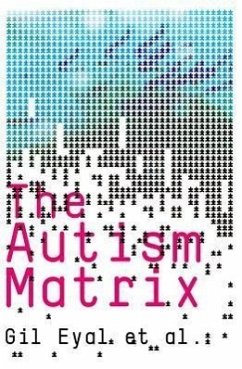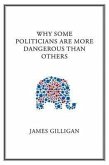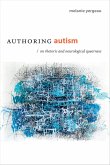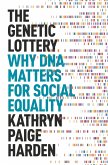"Autism, rare and little publicized twenty years ago, is now constantly in the news and is absorbing ever larger sums of public funding and concern. It has changed school classrooms and perhaps the very nature of childhood. This book is the best available sociological analysis of how this happened, linking recent events to those early in the twentieth century. It tells of the formidable labour of autism activists, their dreams and schisms, with generosity and insight. Institutions, the ideals of the family and its management, and child minding, all play their role. This is a reflective analysis of a pervasive event of our times, replacing clichés by new ideas." Ian Hacking, The Collège de France "The Autism Matrix is an exemplary exercise in historically informed medical anthropology and sociology. This richly argued, engaging, and well-researched book begins with the basic question of why autism diagnoses have increased in recent years and then offers a wealth of cascading implications. The authors succeed in showing that the simplistic question of 'epidemic or not?' is unproductive in comparison to the more intellectually fruitful question of how institutional matrices identify, name, count, and treat neuropsychiatric difference." Roy Richard Grinker, Ph.D. Professor of Anthropology, The George Washington University, and author of Unstrange Minds: Remapping the World of Autism Today autism has become highly visible. Once you begin to look for it, you realize it is everywhere. Why? We all know the answer - or think we do: there is an autism epidemic. And if it is an epidemic, then we know what must be done: lots of money must be thrown at it, detection centers must be established and explanations sought, so that the number of new cases can be brought down and the epidemic brought under control. But can it really be so simple? This major new book offers a very different interpretation. The authors argue that the recent rise in autism should be understood as an "aftershock" of the real earthquake, which was the deinstitutionalization of mental retardation in the mid-1970s. This entailed a radical transformation not only of the institutional matrix for dealing with developmental disorders of childhood, but also of the cultural lens through which we view them. It opened up a space for viewing and treating childhood disorders as neither mental illness nor mental retardation, neither curable nor incurable, but somewhere in-between. The authors show that where deinstitutionalization went the furthest, as in Scandinavia, the UK, and the "blue" states of the US, autism rates are also highest. Where it was absent or delayed, as in France, autism rates are low. Combining a historical narrative with international comparison, The Autism Matrix offers a fresh and powerful analysis of a condition that affects many parents and children today
"Autism, rare and little publicized twenty years ago, is now constantly in the news and is absorbing ever larger sums of public funding and concern. It has changed school classrooms and perhaps the very nature of childhood. This book is the best available sociological analysis of how this happened, linking recent events to those early in the twentieth century. It tells of the formidable labour of autism activists, their dreams and schisms, with generosity and insight. Institutions, the ideals of the family and its management, and child minding, all play their role. This is a reflective analysis of a pervasive event of our times, replacing clichés by new ideas." -- Ian Hacking, The Collège de France
"The Autism Matrix is an exemplary exercise in historically informed medical anthropology and sociology. This richly argued, engaging, and well-researched book begins with the basic question of why autism diagnoses have increased in recent years and then offers a wealth of cascading implications. The authors succeed in showing that the simplistic question of 'epidemic or not?' is unproductive in comparison to the more intellectually fruitful question of how institutional matrices identify, name, count, and treat neuropsychiatric difference." -- Roy Richard Grinker, Ph.D. Professor of Anthropology, The George Washington University, and author of Unstrange Minds: Remapping the World of Autism.
"The Autism Matrix is an exemplary exercise in historically informed medical anthropology and sociology. This richly argued, engaging, and well-researched book begins with the basic question of why autism diagnoses have increased in recent years and then offers a wealth of cascading implications. The authors succeed in showing that the simplistic question of 'epidemic or not?' is unproductive in comparison to the more intellectually fruitful question of how institutional matrices identify, name, count, and treat neuropsychiatric difference." -- Roy Richard Grinker, Ph.D. Professor of Anthropology, The George Washington University, and author of Unstrange Minds: Remapping the World of Autism.








